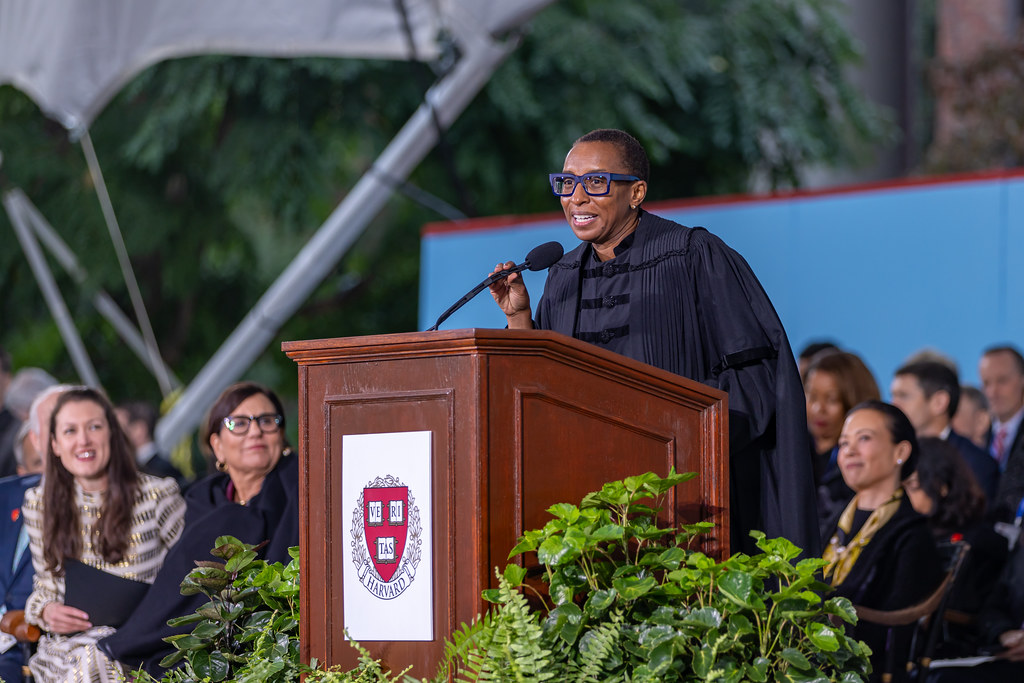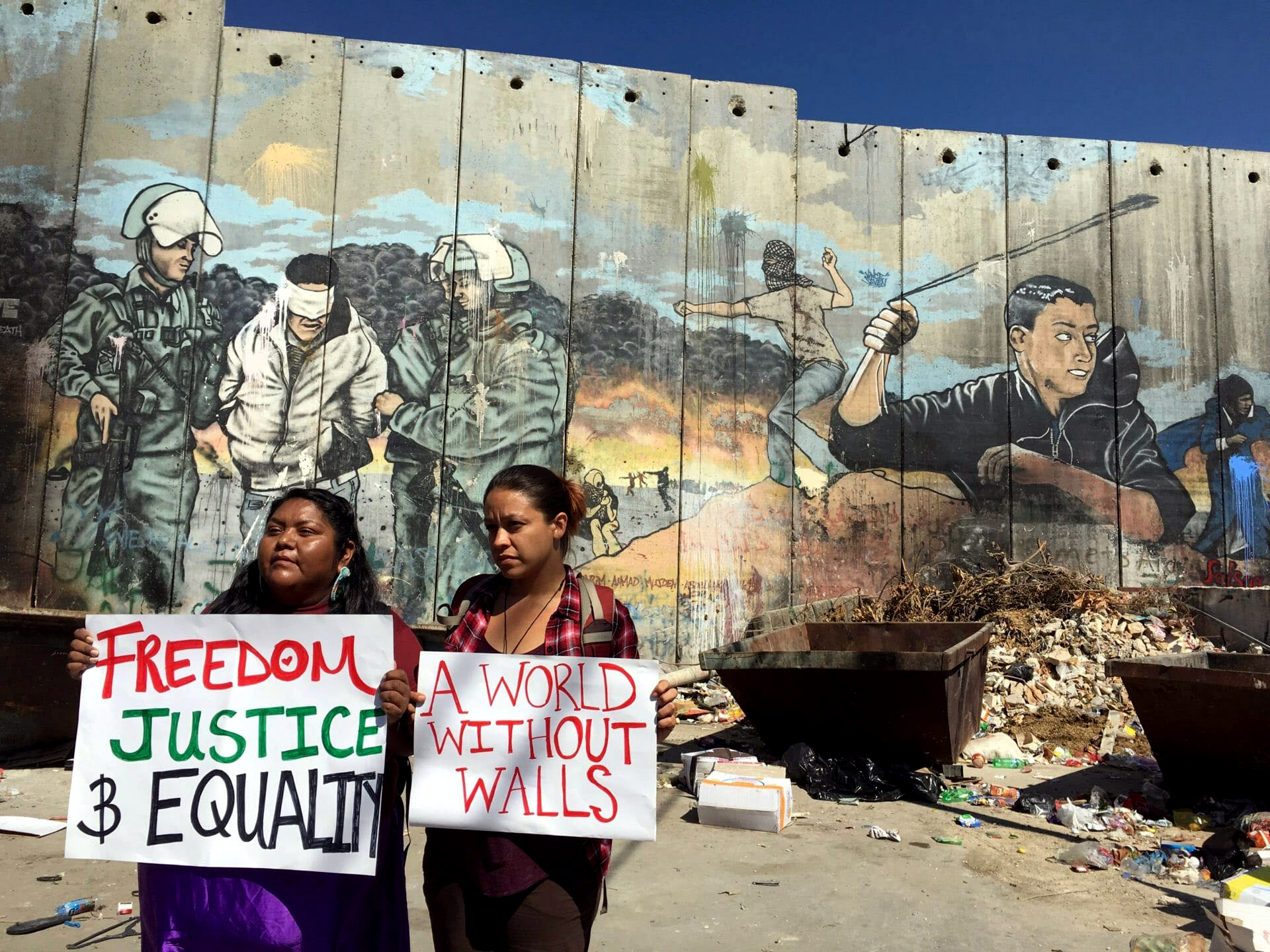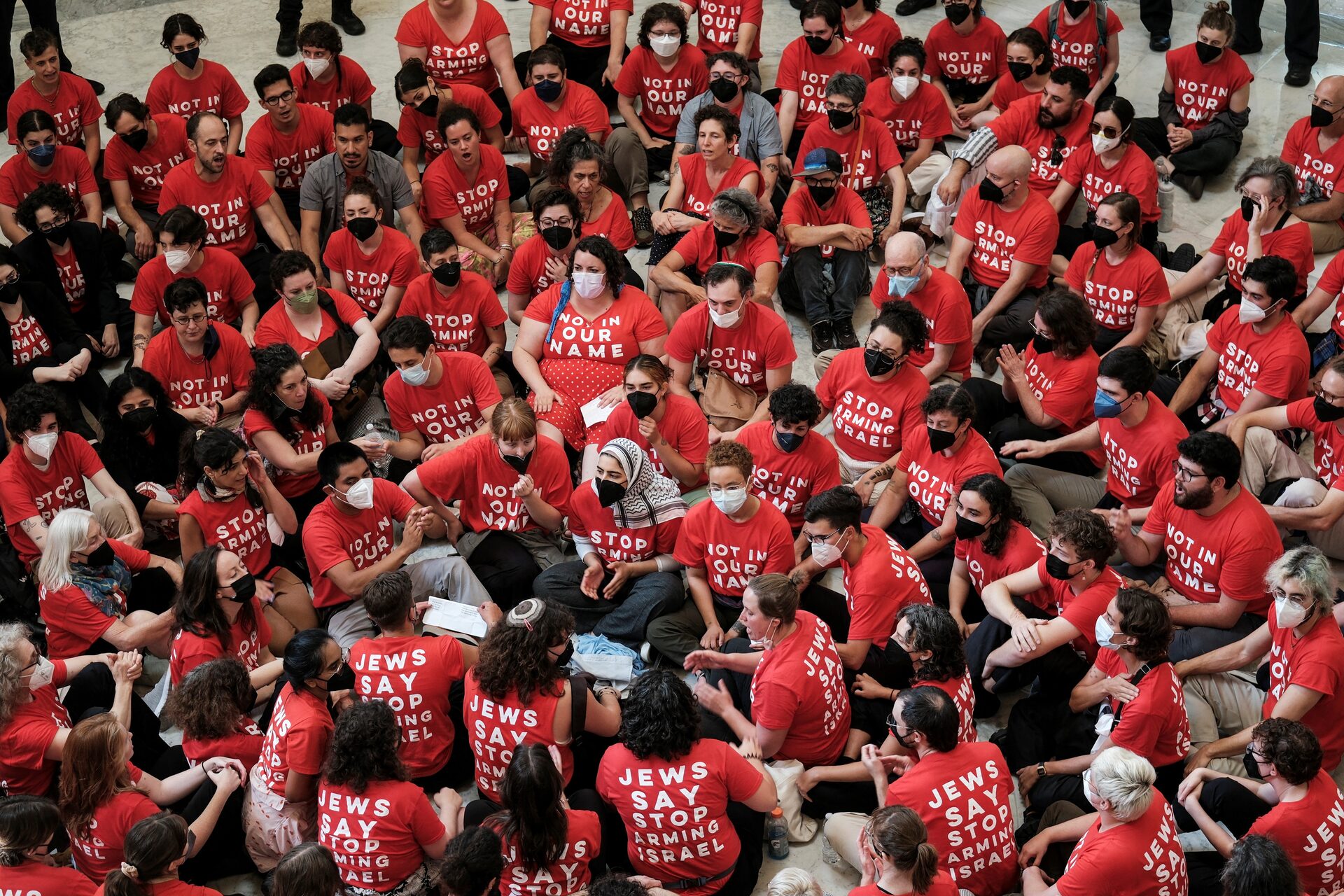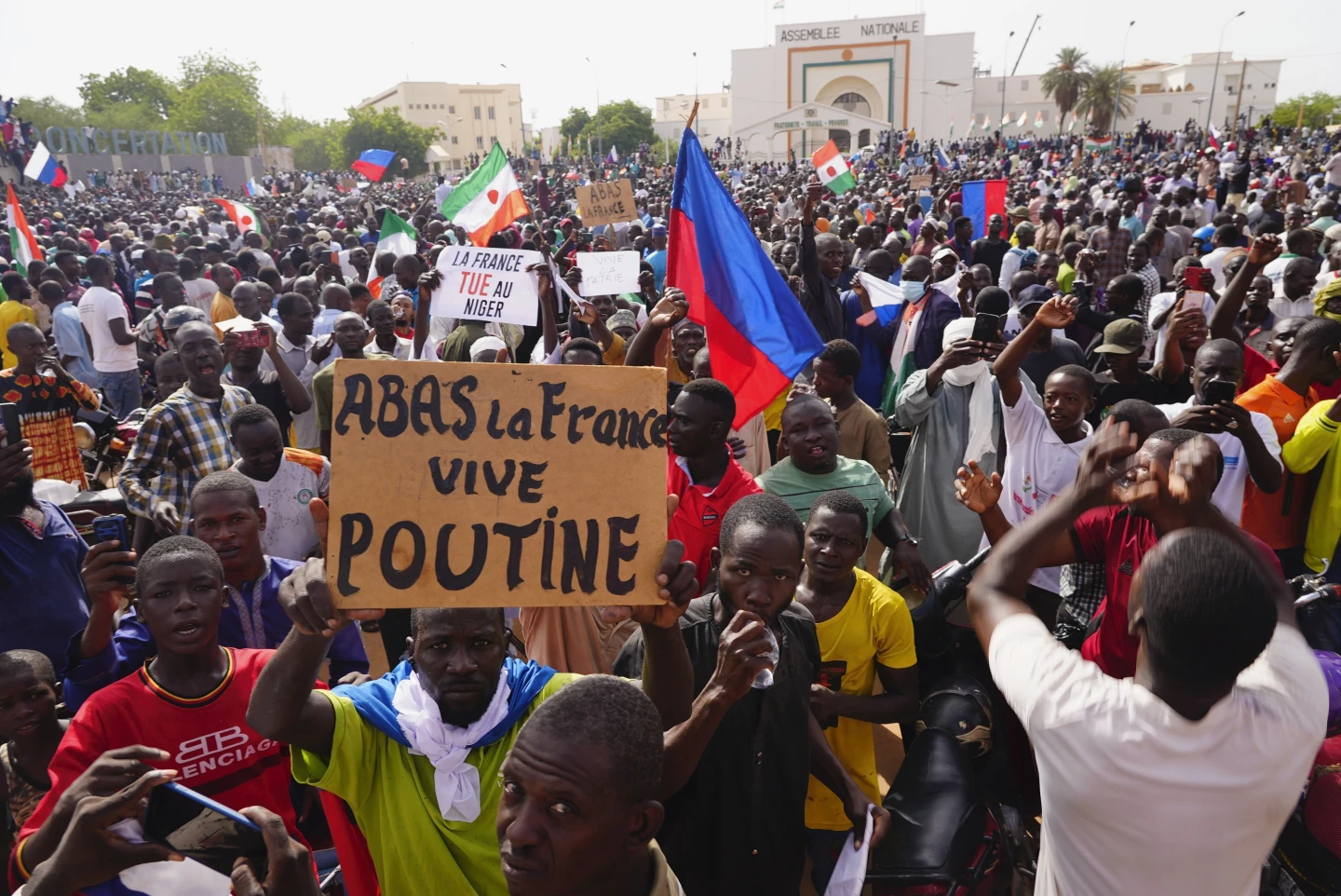Not Zionist Enough: The Rise and Fall of Claudine Gay

It has now been 15 months since Claudine Gay, Harvard’s second woman and first Black president, was forced to resign. That’s more than twice as long as her presidential tenure, the shortest in University history.
The campaign against Gay was two-pronged. She was not only targeted and ultimately removed because she was a Black woman, but also because of what she could not deliver: the total elimination of pro-Palestine organizing on campus. Gay was made into a necessary casualty in a Zionist attack — led by conservative actors and enabled by mass media — which conflates criticism of Israel with antisemitism and seeks to silence all calls for Palestinian liberation.
Ultimately, Gay was both a victim and perpetrator of a campaign forged by the interconnected tyrannies of Zionism, anti-Palestinian hate, anti-Black racism, and white supremacy.
Indeed, Gay’s presidency revealed just how deep Zionism runs at Harvard. While serving as president, she maintained Harvard’s investments in Israel, publicly condemned pro-Palestine rhetoric as antisemitic, and led the charge against campus organizing. Yet even this level of repression was not enough to save Gay when the white supremacist political establishment deemed her expendable. Her resignation was largely a result of an offensive orchestrated by the far-right, spearheaded by propagandist Christopher F. Rufo and hedge fund billionaire Harvard donor Bill A. Ackman ’88.
As a Black woman in a position of power, Gay faced outsized scrutiny from the start. Gay herself knew the presidential post would not be easy. Just days before she assumed office, the Supreme Court struck down race-based affirmative action. Three months later, in the wake of October 7, the Harvard Undergraduate Palestine Solidarity Committee released a statement contextualizing the violence of the day within the ongoing Nakba, Israel’s decades-long occupation, dispossession, and expulsion of Palestinians.
The backlash was swift and brutal. Members of the over 30 student organizations which co-signed the statement were doxxed, their names and faces blasted across the internet and paraded on a billboard truck which drove around Harvard Square slandering them as “Harvard’s Leading Antisemites.” Some even faced death threats.
After Gay released University-wide statements on the “war in the Middle East,” she faced significant public controversy of her own, coming under fire for not condemning October 7 and the PSC’s subsequent statement with sufficient force or expediency. Under increasing pressure, Gay released further statements disavowing dissenting students, condemning Hamas, and labelling “from the river to the sea, Palestine will be free” as antisemitic.
At no point during her tenure did Gay offer support to the doxxed students, many of whom continue to feel the reverberations of their public defamation today. At no point did Gay take steps to address Harvard’s rampant Islamophobia, anti-Arab hate, and anti-Palestinian racism with the same determination as she did antisemitism. At no point did she speak with Palestinian and pro-Palestine students or engage with their affinity spaces. At no point did she offer a single word of condemnation against Israel’s ongoing genocide in Gaza.
In December 2023, Gay — alongside the heads of the University of Pennsylvania and the Massachusetts Institute of Technology, both women too — were summoned for a congressional committee hearing. Representative Elise M. Stefanik ’06 (R-N.Y.) battered the presidential panel with questions: Does calling for the genocide of Jews violate codes of conduct against bullying and harassment?
Gay responded that it “can be, depending on the context,” spurring calls for her resignation in the House of Representatives, which quickly launched a federal investigation into accusations of antisemitism at Harvard. On Jan. 2, 2024, after her disastrous appearance before Congress and mounting allegations of plagiarism, Gay was forced out.
Since Gay’s resignation, Harvard has adopted a stance of “institutional neutrality” — a deceptive phrase which allows Harvard to maintain a Zionist status quo — and Gay’s successor, President Alan M. Garber ’76, has carried on Gay’s repressive crusade. Since Gay’s resignation, the suppression of pro-Palestine speech has reached new heights. Students who participated in pro-Palestine protests and last spring’s Gaza Solidarity Encampment faced unprecedented disciplinary sanctions. Garber has since doubled down on his commitment prosecuting pro-Palestine speech, adopting the International Holocaust Remembrance Alliance’s definition of antisemitism, which conflates certain criticisms of Israel with hate speech.
In the public eye, Gay is remembered as a victim of right-wing misogynoir. But her students will also remember the repressive campaign she waged against free speech and the Palestinian and pro-Palestine community. If nothing else, Gay’s case reveals that no amount of appeasement will satisfy those determined to silence all calls for Palestinian liberation. So long as the word “Palestine” continues to be uttered on Harvard’s campus, critics will attempt to threaten and punish the University at every level, from the president to the student.




